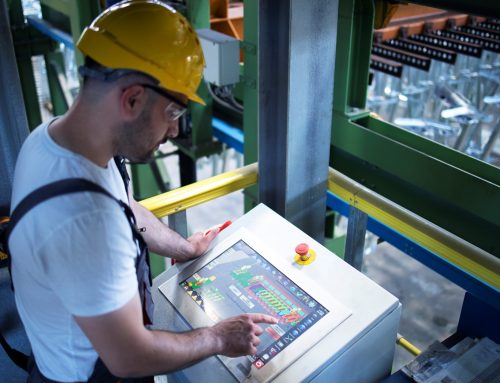Learn how asset management software can facilitate the integration of AI in the industry and how to train teams to deal with this disruptive technology.
According to data gathered by Bain & Company, AI (Artificial Intelligence) can lead to a 50% increase in employee productivity. Therefore, investing in this area should be a priority for 85% of companies, contributing to a total injection of R$1.3 trillion into the market.
Artificial intelligence (AI) is revolutionizing the business world, bringing new possibilities for optimization, innovation, and competitiveness. But how can companies harness the full potential of AI and prepare their teams to deal with this disruptive technology?
In this article, we will show how asset management software can facilitate the integration of AI in the industry and what the best practices are for training and making teams more efficient in the era of artificial intelligence. Let’s delve in!
What is Artificial Intelligence and How Does it Impact the Industry?
Artificial intelligence is the ability of machines and systems to perform tasks that would normally require human intelligence, such as pattern recognition, learning, reasoning, decision-making, and problem-solving. AI can be applied across various industry sectors, including automation, manufacturing, logistics, quality, safety, among others.
Its application can:
● Increase productivity and process efficiency.
● Reduce costs and waste.
● Enhance product and service quality and accuracy.
● Provide greater flexibility and adaptability to market changes.
● Create innovative business models and competitive advantages.
However, to reap these benefits, companies need to be prepared to implement and manage AI solutions strategically and responsibly. This involves not only investing in infrastructure and technology but also in the training and development of teams.
How to Train and Make Teams More Efficient in the Era of Artificial Intelligence?
For AI solutions to succeed in the industry, teams must be equipped and aligned with the company’s objectives and expectations.
This entails not only understanding how the technologies work but also grasping business concepts and rules, customer needs and desires, organizational values and culture, and the ethical and legal principles governing AI applications.
Has your company adopted any AI solutions to optimize its operations? Or are you considering doing so? Then, follow these training best practices.
Communicate the Strategy
It is essential to define a clear and shared AI strategy with all project stakeholders, from top management to operators.
Establish transparent and frequent communication about the benefits, challenges, and risks of AI for the company, industry, and society.
Pay Attention to Your Corporate Culture
Another crucial step is to create a culture of continuous and collaborative learning, encouraging the exchange of knowledge, experiences, and feedback among teams.
Provide Training
Offer personalized training tailored to each team member’s profile, level, and needs, using methods such as learning by doing, gamification, mentoring, etc.
Trainings should be specific to the implemented AI tools. Asset management software enables control and optimization of company assets’ performance and utilization, such as machines, equipment, facilities, vehicles, and more. These software solutions can integrate various AI-related functionalities that your teams need to be acquainted with.
Monitor Training Results
Track teams’ performance and satisfaction, evaluating the impact of training on productivity, quality, and process innovation.
Reward
Efforts and results of teams must be recognized and rewarded, valuing the technical and behavioral competencies developed. This can be done through awards, bonuses, and other types of benefits.
Artificial intelligence is an increasingly present reality in the industry, bringing opportunities and challenges to companies and their teams. Asset management software can be strong allies in facilitating the integration of AI in the industry, but it is also crucial to invest in teams’ training and development so they can fully harness AI’s potential.
Ready to elevate your team? Request a demonstration of our asset management software!






Leave A Comment